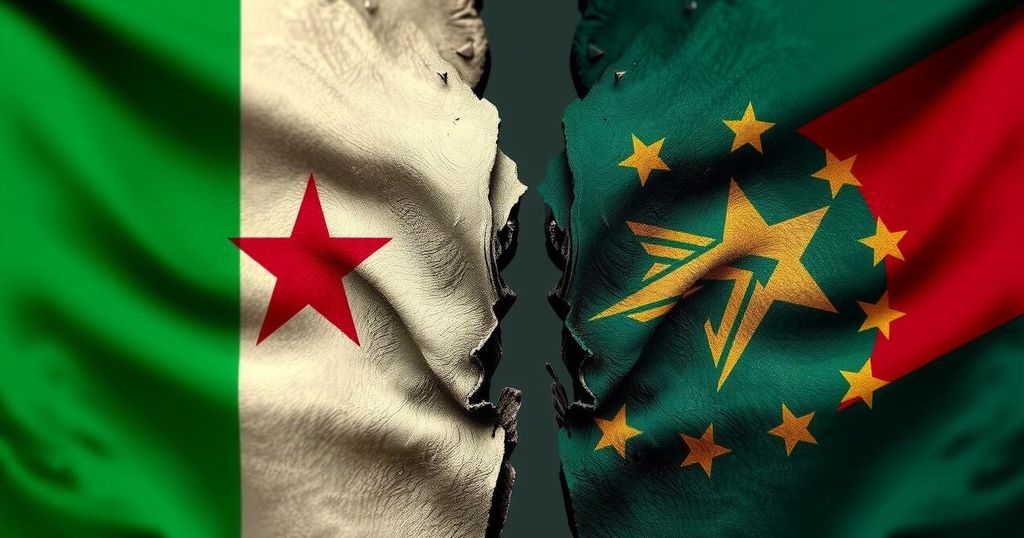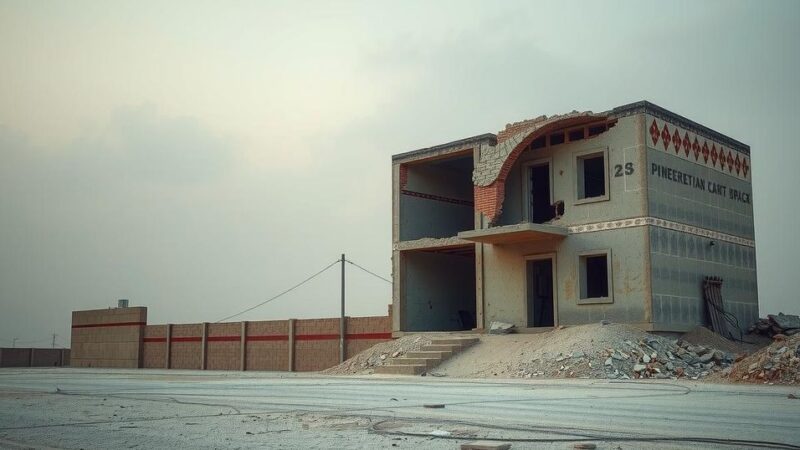President Hassan Sheikh Mohamoud’s policies threaten stability in Somalia and the Horn of Africa by denying Somaliland’s right to self-determination and obstructing Ethiopia’s access to Red Sea ports. This creates risks of regional animosity, especially with Ethiopia, undermines economic cooperation, and perpetuates Somalia’s internal instability. The need for international support for Somaliland and Ethiopia’s collaboration is crucial for regional prosperity and peace.
The Horn of Africa has long been characterized by intricate historical, political, and economic dynamics that shape its stability. Currently, a pressing threat to this fragile equilibrium emerges from President Hassan Sheikh Mohamoud of Somalia. His policies, which disregard Somaliland’s pursuit of self-determination and attempt to obstruct Ethiopia’s access to crucial Red Sea ports, jeopardize the well-being of 120 million individuals and the merits of Somali-Ethiopian relations. Since declaring independence in 1991, the Republic of Somaliland has developed into a functioning democracy, achieving notable peace and economic advancement. Its strategic location near Ethiopia has facilitated significant international agreements, such as the partnership with the United Arab Emirates for the management of Berbera Port by DP World. These developments position Somaliland as a vital economic actor, particularly with around 40 million Ethiopians relying on trade routes through the Red Sea. President Mohamoud’s actions, including sanctions that hinder these vital connections, could have detrimental implications for both Somaliland and Ethiopia’s economic viability. His refusal to foster cooperation is interpreted as a grave political error that threatens to escalate tensions in the Horn of Africa, particularly with Ethiopia, a key player in regional stability. Notably, Ethiopia’s access to Red Sea ports has been a pivotal part of its geopolitical strategy, and Mohamoud’s efforts to impede this access may provoke hostility as well. The internal turmoil faced by Somalia adds further complexity to this situation. For over thirty years, Somalia has grappled with civil conflict, terrorism, and foreign interventions, whilst Somaliland has maintained peace and progress. President Mohamoud’s focus on diminishing Somaliland’s status detracts from addressing his own nation’s pressing challenges, thus prolonging Somalia’s instability and hindering the establishment of a cohesive government in the southern part of the country. An additional layer of risk is introduced by Egypt’s involvement in the regional dynamics. President Mohamoud’s alignment with Egypt within the tripartite agreement among Egypt, Eritrea, and Somalia raises concerns regarding the stability of the area. Egypt’s pursuit of its interests regarding Nile access may lead to leveraging Mohamoud’s policies against Ethiopia, igniting potential proxy conflicts, particularly in southern Somalia, which would further destabilize the region and reverse decades of development progress. It is paramount for the international community to take swift action to endorse Somaliland’s claim to self-determination and encourage economic collaboration with Ethiopia. Strengthened economic ties between Somaliland and Ethiopia, which involve trading opportunities for 120 million Ethiopians, hold the promise of fostering regional prosperity. Hence, it is vital to prevent envy, sectarian biases, or personal ambitions from obstructing such beneficial progress. In conclusion, President Mohamoud’s current policies pose a grave risk of perpetuating conflict and instability in the Horn of Africa. His refusal to acknowledge Somaliland’s independence and his antagonistic approach towards Ethiopia threaten to instigate long-term hostilities, thereby altering the geopolitical landscape of the region for generations to come. Ensuring the recognition and safeguarding of the partnership between Somaliland and Ethiopia is crucial for nurturing peace and fostering development in the area.
The Horn of Africa is a region historically marked by complex relationships and power dynamics, influenced by various factors including colonialism, civil conflict, and economic interests. Somaliland proclaimed its independence from Somalia in 1991 and has since functioned as a stable, self-governing entity, promoting democratic governance and economic growth. Ethiopia, with critical reliance on access to Red Sea ports for trade, regards its relations with Somaliland as paramount for its economic strategy and national security. President Hassan Sheikh Mohamoud’s antagonistic stance towards Somaliland, coupled with his efforts to restrict Ethiopian port access, poses a significant challenge to this balance and threatens to destabilize the region further.
The policies advocated by President Hassan Sheikh Mohamoud not only endanger the welfare of millions but also jeopardize crucial international partnerships in the Horn of Africa. By obstructing Somaliland’s autonomy and hindering Ethiopia’s access to maritime trade routes, there exists a high potential for inflamed regional tensions and continued instability. The imperative role of the international community is to advocate for a harmonious partnership between Somalia, Somaliland, and Ethiopia, fostering an environment conducive to peace and development moving forward.
Original Source: www.modernghana.com






